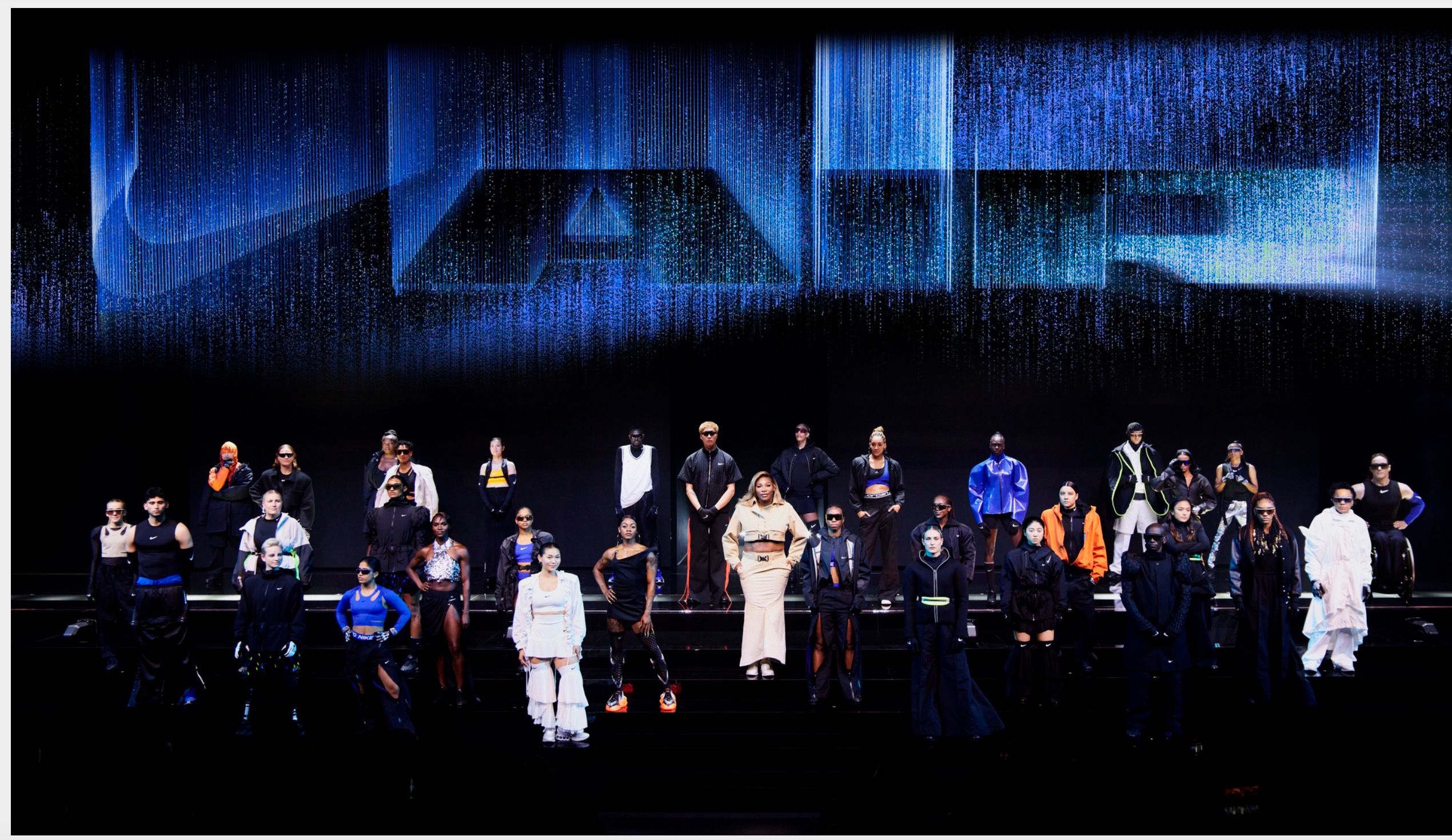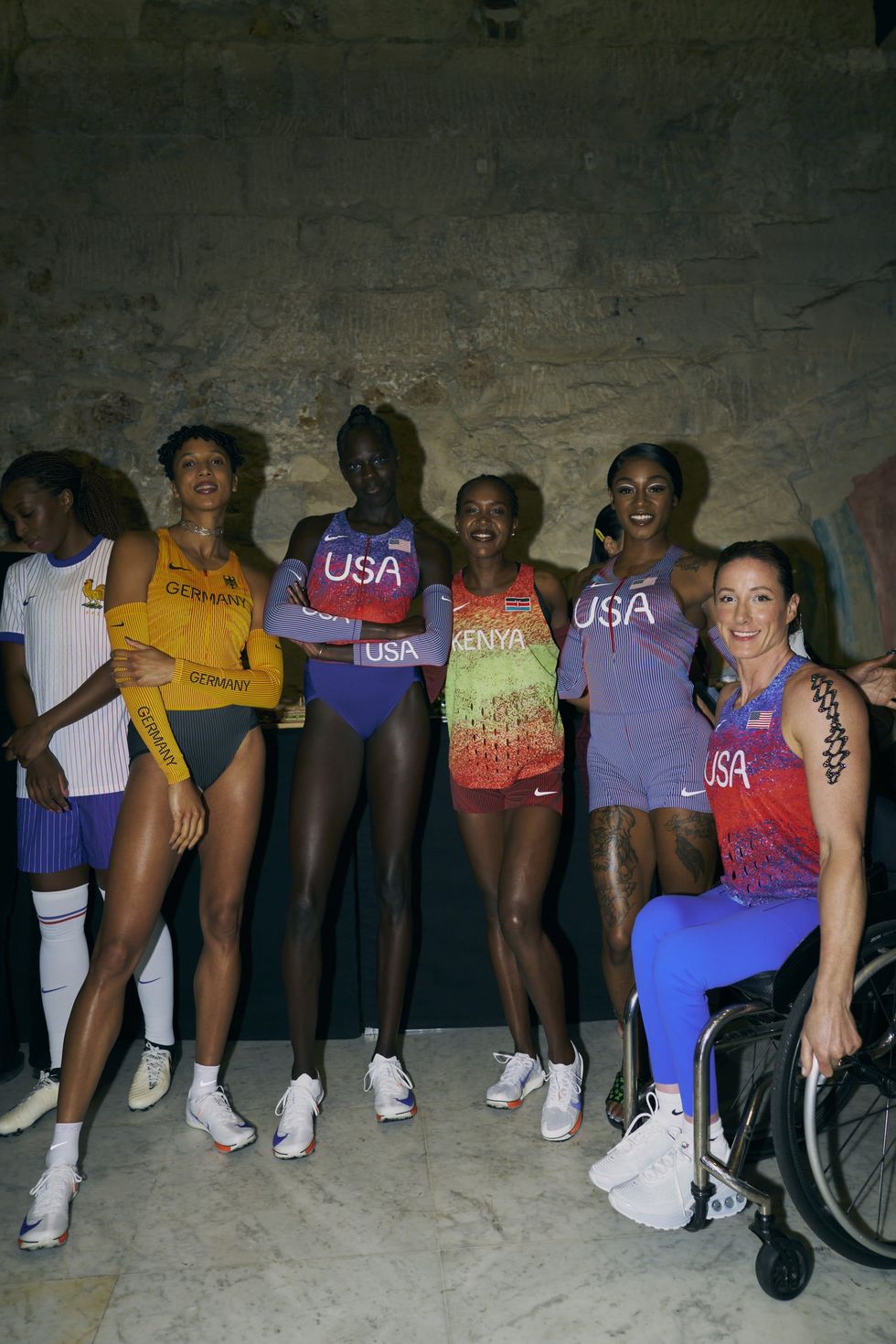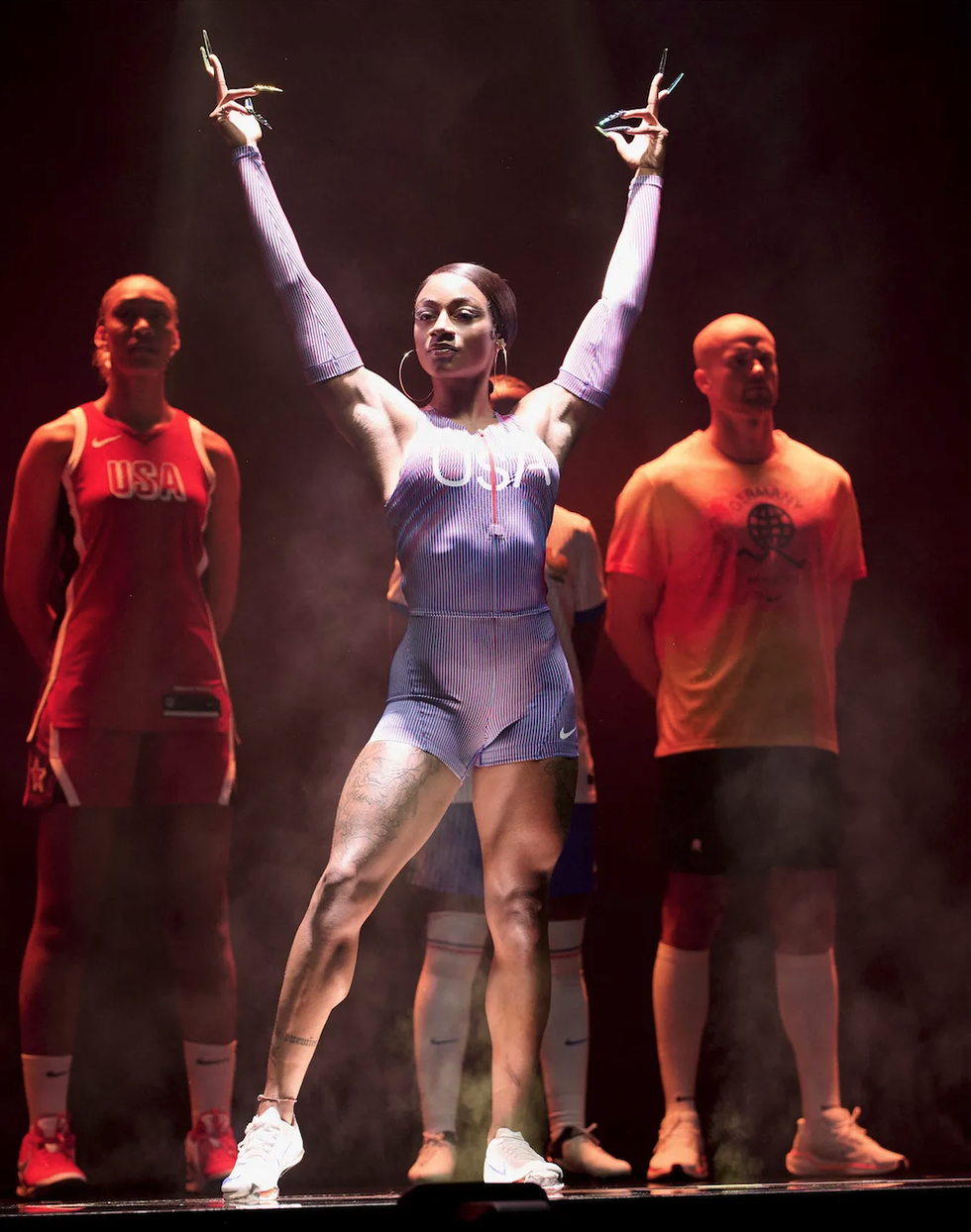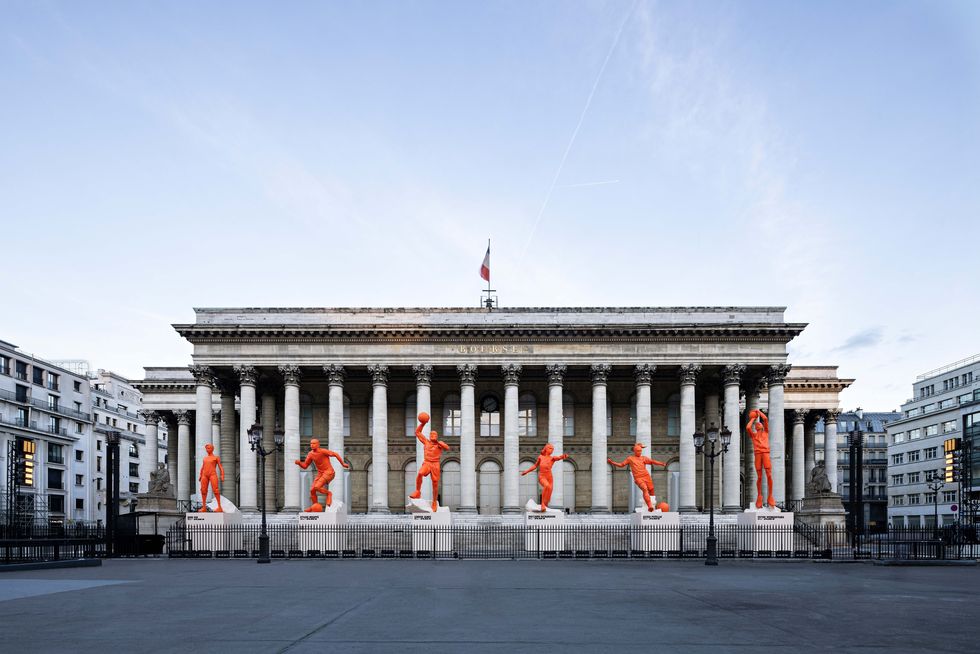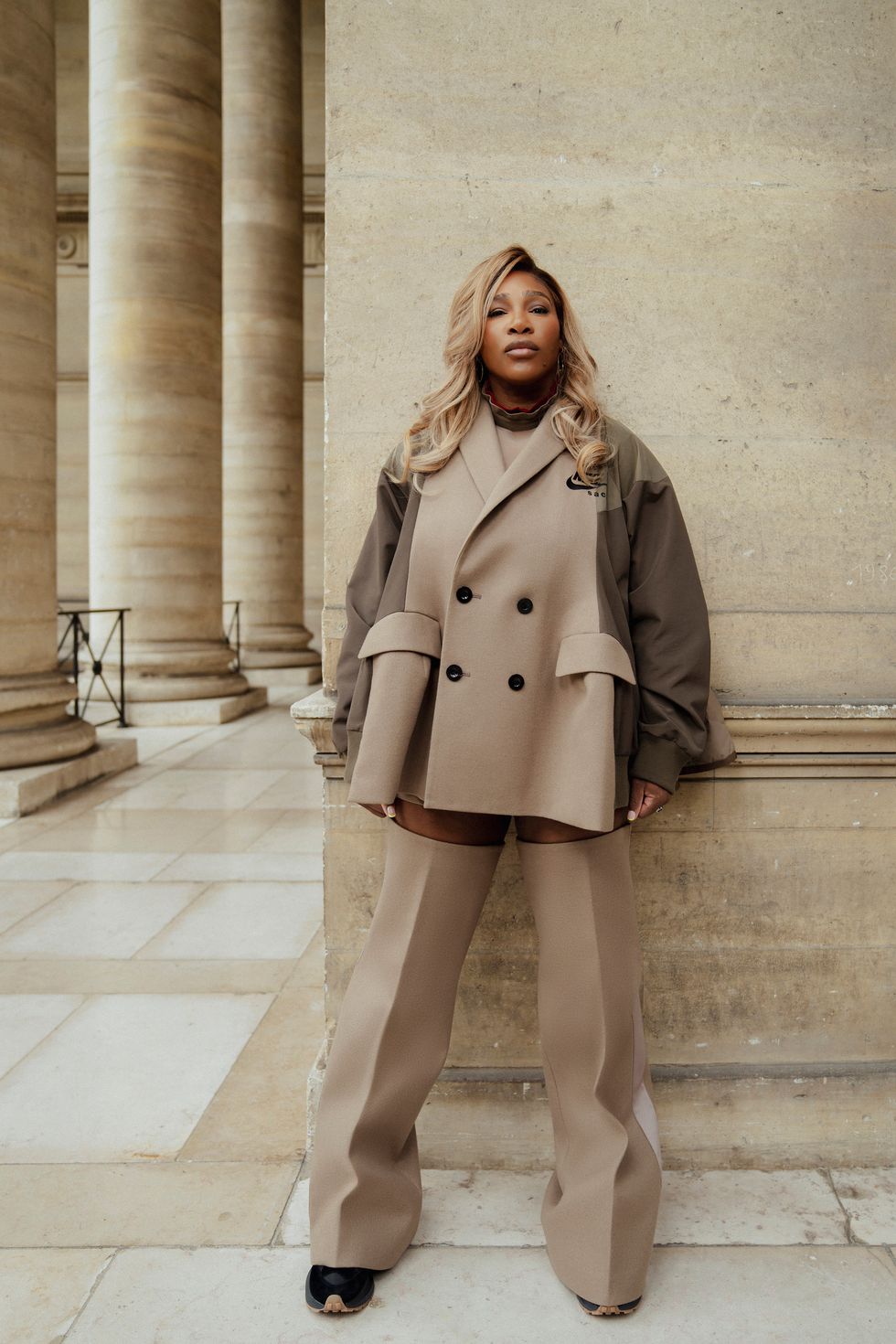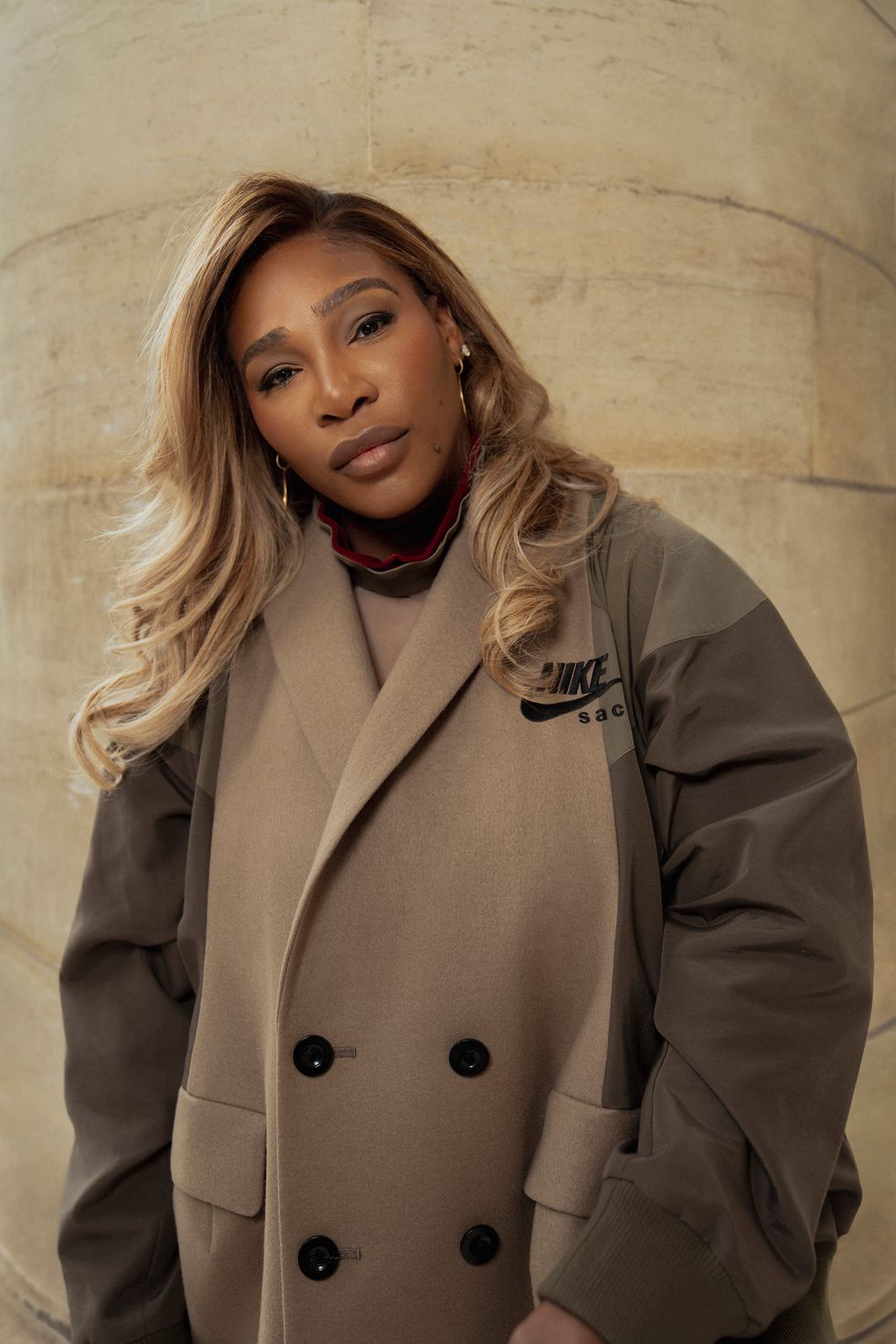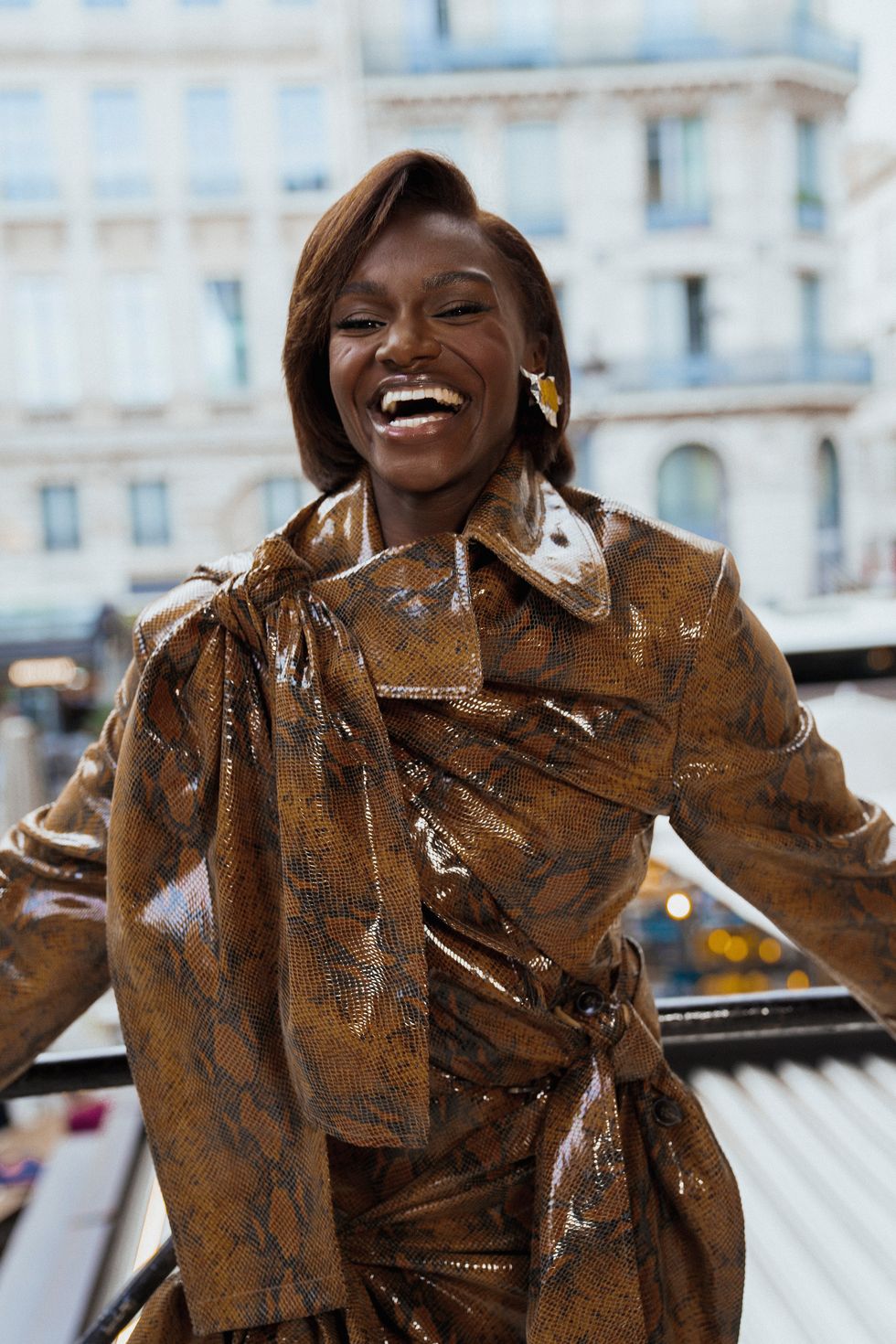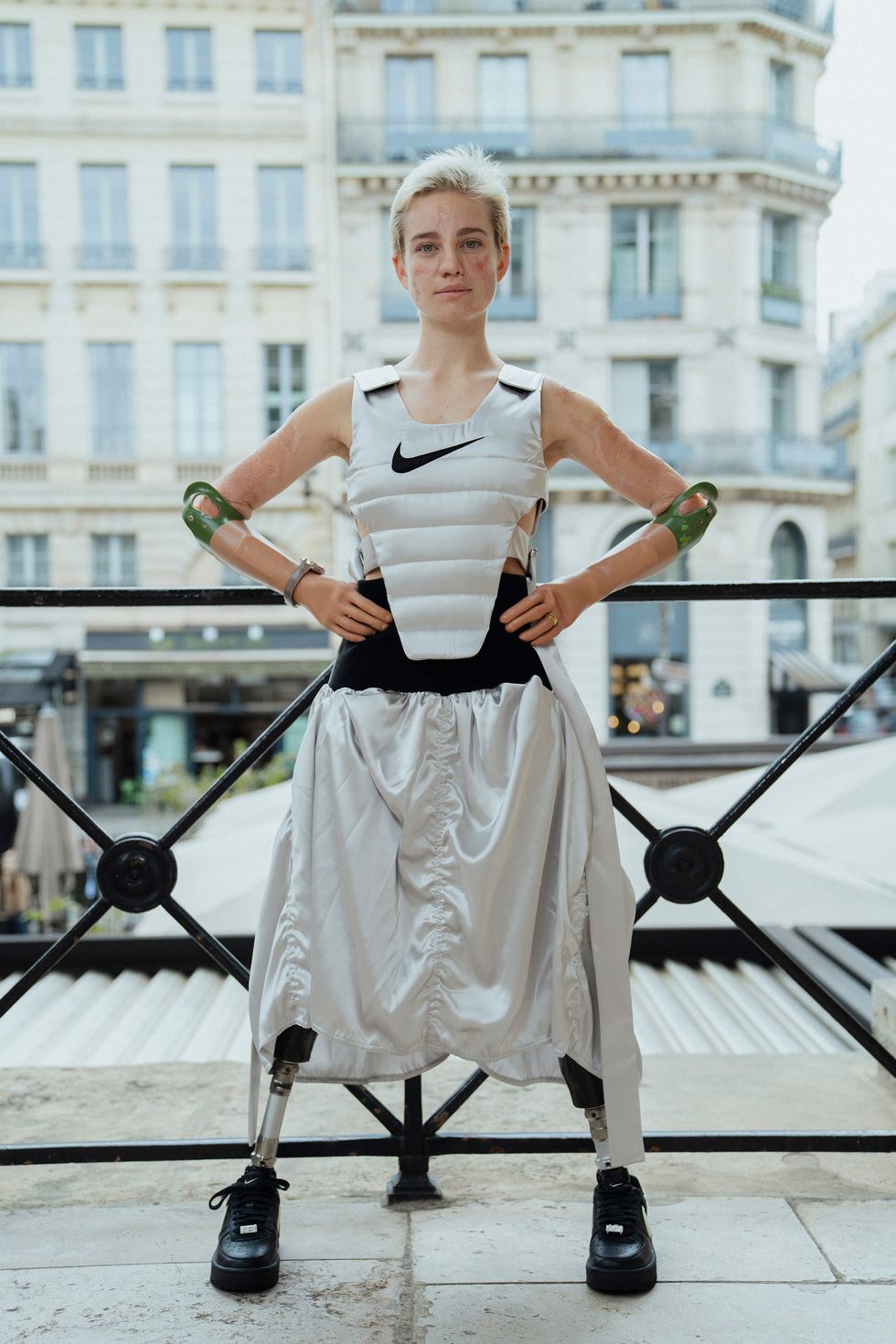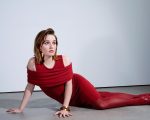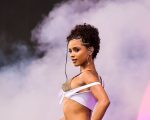The original post is located at www.elle.com
In Paris, signs of this summer’s Olympics are everywhere: stadiums are being constructed throughout the city, including one right under the Eiffel Tower, the Siene is being cleaned up for its close-up, and Parisians are renting their homes, fleeing as an estimated 15 million visitors descend. Last week, Nike got in on the excitement leading up to the Games, which kick off just over three months from now, when it debuted its Olympics uniforms at Nike on Air, an exhibition that traced the history and future of its Air technology, and a fashion show at Palais Brongniart, featuring 40 athletes, including sprinter Sha’Carri Richardson, basketball star A’ja Wilson, and gymnast Jordan Chiles, wearing the newly unveiled kits.
The uniforms—designed for countries including the U.S., South Korea, Germany, Kenya, and others—were crafted in partnership with the competitors, many of whom came to the Nike Sports Research Lab in Beaverton, Oregon, to help create the fits. Nike calls the collection its “most athlete-informed, data-driven, visually unified” ever produced. “From stitch to stitch, pixel to pixel, we can engineer everything from ventilation to support for different bodies,” says Janett Nichol, Nike’s VP of App arel Innovation, explaining that the company uses motion capture to record an athlete’s movements and creates the product with that data in mind.
There are nearly 50 unique pieces for men and women’s track and field alone, so athletes can choose the look they like best. For example, options for the bottoms include compression shorts, a bodysuit with shorts, and bikini bottoms (the latter caused some controversy when an image of it was posted online, with some athletes criticizing the ultra-high cut).
For new sports, like skateboarding and breakdancing, which will make their Olympic debut this summer, Nike used its same high-performance, sweat-wicking, breathable materials, but worked with the competitors to give the uniform the street-style look they were seeking.
The sportswear giant also sought to push the designs to “new and unexpected places, while still keeping with the country’s overall look and feel,” says Jordie Katcher, Nike’s VP of Global Apparel. Take the Kenya track and field kit, for instance, which in past Games has been black and red. For this year’s look, Nike’s designers were influenced by outdoor running in Kenya, and worked to incorporate green as a nod to nature, along with the traditional black and red. “Everything we do starts with the athlete at the center,” Katcher says. “Every uniform we’ve designed has been inspired by the unique identities and diverse communities of the countries and sports they represent.”
During the fashion show, Nike also emphasized the connection between style and sport with the unveiling of some of its new lifestyle looks, including one-off collaborations between marquee athletes like Serena Williams with designers like Chitose Abe of Sacai. “I’ve never seen anything like this, let alone worn anything like this,” Williams says of the Sacai collab. “I feel so powerful and unique, and I love that feeling.”
London menswear designer Martine Rose created outfits with both British sprinter Dina Asher-Smith and Australian soccer player Sam Kerr. Asher-Smith’s leather snakeskin look “is very Martine, very masculine, but also me,” the track star says, adding that they included cut-outs for a touch of sex appeal. “We work so hard to make sure everything on the track is done 110 percent, but part of putting my best foot forward and showcasing who I truly am is also visual,” Asher-Smith says. “I want to feel invincible. I want to feel limitless. When people see me, I want them to think, Oh my god, she looks phenomenal. When the stadium lights go down, I want to glitter, I want to sparkle, I want to be the moment.”
For the ensemble Yoon Ahn of Ambush crafted with Italian fencer Bebe Vio, Ahn says she looked to the traditional fencer uniform, but sought a more feminine, dress-like ensemble. “You often see fencers in a pantsuit—very armor like. I wanted to make the armor look softer and elegant and elevated,” she says. “She’s going to be standing in front of all of the media and the world and I wanted to make her feel like a goddess.”

